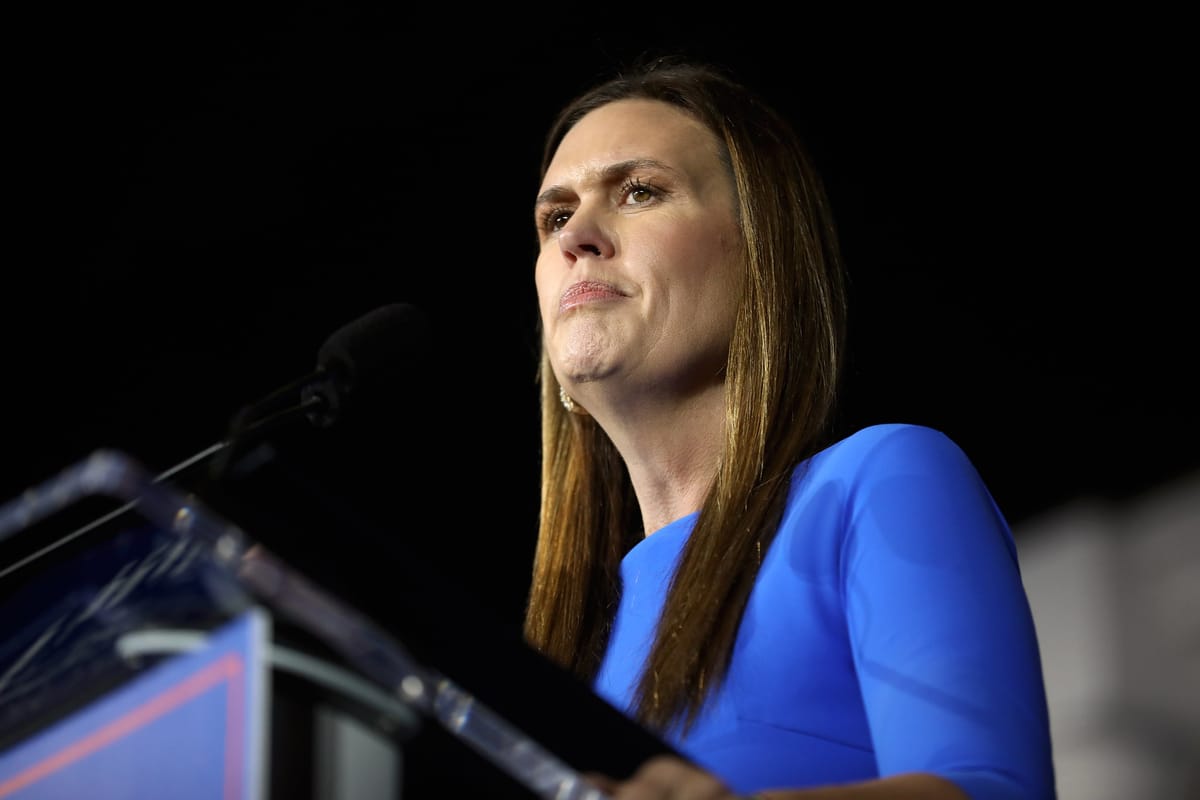For Non-Binary Arkansans, No ID, No Entry Into Public Life
The governor of Arkansas has intentionally demeaned minority communities in a state where their position is already precarious.

The Arkansas Supreme Court recently reinstated a ban on using a nonbinary gender designation on state ID cards. A lower court had previously blocked a rule barring the use of “X” as an option for gender, but now the ban is back in effect. Opponents have attacked the rule as “erasing” trans and nonbinary people.
They are right in my opinion. Excluding those who don’t hew to binary Male/Female identities from state identification is a declaration that the state does not consider them to exist.
Arkansas governor Sarah Sanders has been leading a similar charge throughout the state bureaucracy. Early in her term, she issued executive orders banning the use of “woke” terms like “LatinX,” “pregnant people,” and “birth giver.” Sanders herself admitted that the actual use of these terms was almost nonexistent—able only to cite a single state Health Department example for using language like “human milk.”
This is unsurprising. Arkansas is not a bastion of left-wing politics. Sanders was not rooting out some actually existing tyranny of activists or deeply ingrained progressivism in the government. Instead, she went out of her way to demean minority communities in a state where their position is already precarious. And the tactics are principally about who does and doesn’t count as a full member of Arkansas society.
But the language of internal government documents and communications is one thing. Restricting the use of a nonbinary sexual category on state-issued IDs is a far more public and frontal assault.
IDs are, to make an obvious point, meant to identify us. How can they be said to do if such a fundamental aspect of individual identity is being obliterated?
Arkansans can still go through a process to change their identity from M to F, or vice versa, but it’s an arduous one that includes updating their certificate and obtaining surgical procedures that are difficult to secure under state law. A number of U.S. states now impose laws that limit or otherwise put controls on how a person can identify on state IDs.
This an old tactic in hard right attacks on minority groups. Bureaucracy can be a potent tool for in-grouping and out-grouping, all the more effective because of the facelessness with which it tends to operate. But the bureaucratic organs of the state are how it most often comes to us: through the DMV, property taxes, gaming and fishing licenses, and parks. It’s also how we most come to interact with and know the state, even if we don’t always consciously acknowledge it.
The state has the power to see you, to put the facts of who you are on paper and plastic—or, conversely, to constrain or distort those facts through control of language and official categories of recognition.
Recognition is a critical part of membership in any community. Transgender and queer Americans have long been barred from full membership, but the new policies under Sanders are specifically targeted to cut them out entirely.
The argument is fairly simple: anything that transgresses binary sex categories is a scientific lie. The Arkansas Supreme Court decision was greeted with enthusiasm by anti-trans activists, including college swimmer cum right-wing influencer Riley Gaines, who posted “There is male and female. Anything else is fraudulent. Good on Arkansas.”
So often, anti-trans activists are playing a semantic rather than a scientific game. It is, after all, entirely possible for a person to be born with intersex characteristics, even aside from the more nuanced questions of gender expression. In fact, about 1.7% of babies are understood to be born intersex.
But the core question here is cultural and ultimately political. It must be because it is about who counts, who is deserving of dignity and mutual recognition in the public square.
Sanders has leveraged her own elevated public position to mock trans women, even packaging that derision into a commodity. In spring of 2023, she cut an ad with fellow Republican governors Kay Ivey, Kim Reynolds, and Kristi Noem hocking a “Real Women of Politics” beer koozie—a barely satirical dig at Bud Light’s commercial featuring trans influencer Dylan Mulvaney.
And so the state of Arkansas and its governor have sent a clear message: trans and gender non-conforming people don’t exist and so have no place in the Arkansas body politic. This is more than a mere question of discrimination. How does one persuasively lodge an objection to discriminatory treatment in a society that views your identity as a lie and a disqualifying delusion?
This is also a matter of the quality of democratic and civic life where people live. We already now have a patchwork of political realities when it comes to reproductive rights. We are also witnessing state-level assaults on LGBTQ Americans the likes of which we haven’t seen since the wave of same-sex marriage bans in the 2000s. National democracy scores and debates about saving American democracy can elide the degree of backsliding already unfolding at more proximate and intimate levels of political life.
American democracy is at stake, no doubt. But the principles of liberal democracy are on life support in many localities, and trans rights is at the center of that decline.
Featured Image is Sarah Huckabee Sanders, by Gage Skidmore




